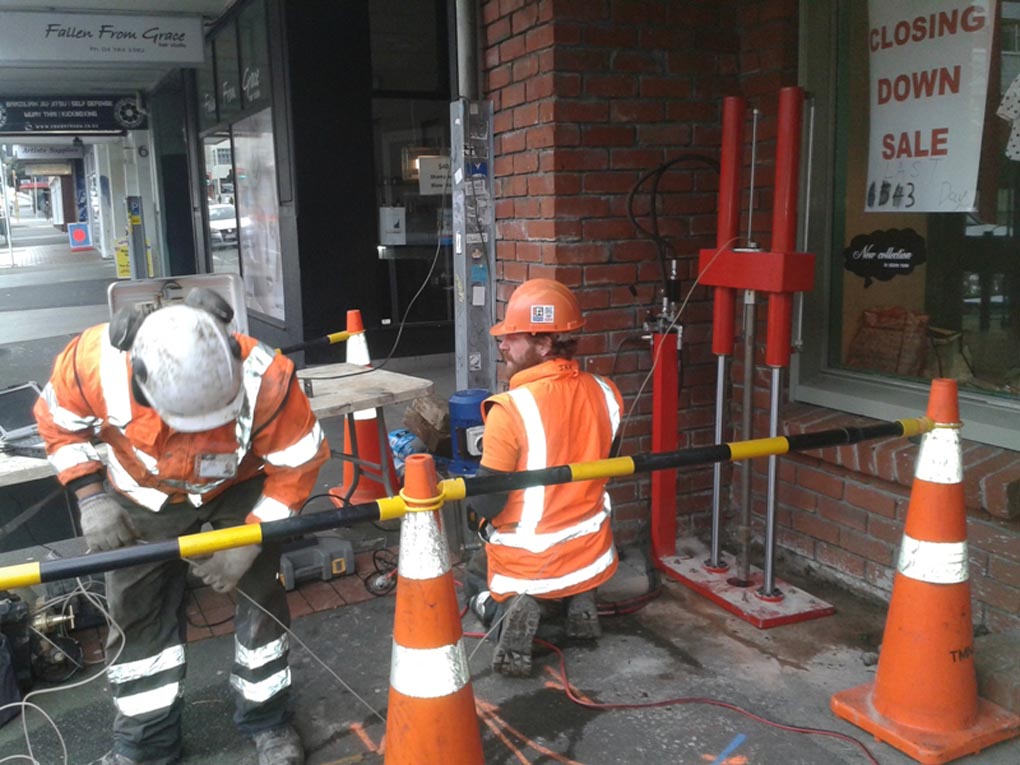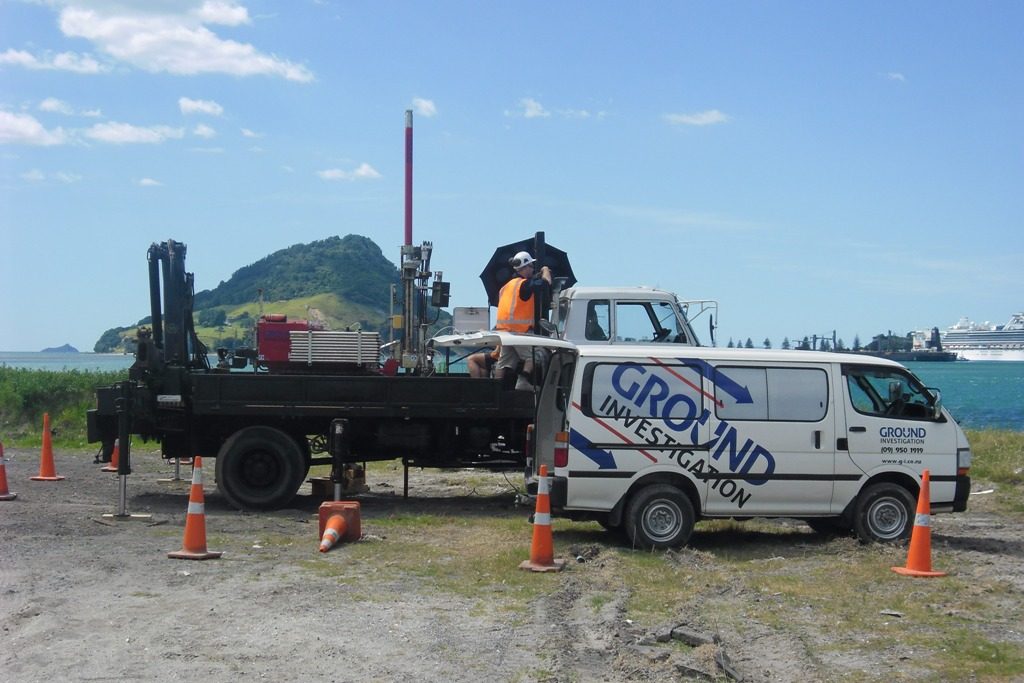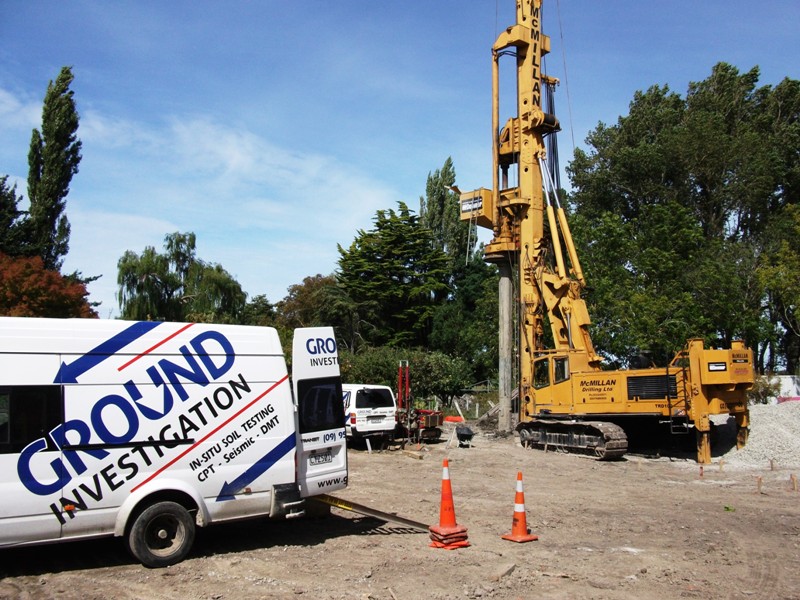The cone penetration test
The cone penetration test, otherwise known as a CPT test, is an in situ test used in the investigation and analysis of geotechnical engineering problems.
The Cone Penetration Test (CPT) is undertaken by pushing an instrumented cone into the ground at a continuous rate. A cable from the cone, that runs through the push rods, sends information to a computer at the surface. The cone provides near-continuous data on the strength of the ground as it is pushed in. The cone records cone resistance, qc, sleeve friction, fs and pore water pressure, u2 at 10 mm depth intervals.
Choosing a CPT cone for the ground conditions at your site
Ground Investigation Ltd operate a large range of CPT cones from different manufacturers and of different sizes and sensitivities. Therefore ensuring that we have the right cone available for the particular ground conditions at your site. Our range includes sensitive cones (20 MPa) for soft clay applications and 100 MPa cones for dense sands and gravels. We have both compression and subtraction cones available and all of our cones are electronic piezocones that measure pwp at the u2 position.
At present we have over 30 cones available and a selection is listed below. We are constantly managing and expanding our range of CPT cones available for use in New Zealand soils. Therefore if you have a requirement for a particular type of cone for your project just give us a call.
Ground Investigation’s CPT cones
- Geomil: both 10 cm2 and 15 cm2, 20 MPa, 50 MPa and 100 MPa
- Pagani: 10 cm2, 50 MPa
- A.P. van den Berg: 10 cm2 and 15 cm2: 75 MPa and 100 MPa
- Gouda: 15 cm2, 100 MPa
- Geopoint: 15 cm2, 100 MPa
Choosing a CPT rig for the conditions at your site.
Ground Investigation specialise in providing rigs suitable for difficult access sites and have a large selection of CPT rigs available. In addition our heavy ballasted rigs (Truck-mounted and Morooka rigs) have large push capacities that allow us to undertake a cone penetration test through dense sands and gravels and also weak rock.
Cone penetration test procedures
At Ground Investigation we undertake our cone penetration testing in general accordance with internationally recognised procedures as outlined in ASTM D5778 and ISO 22476-1. In addition our cones are regularly calibrated in-house in our own calibration laboratory.




